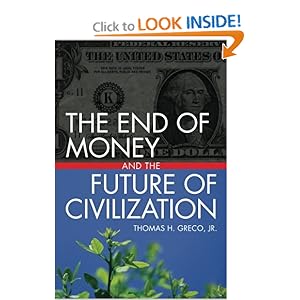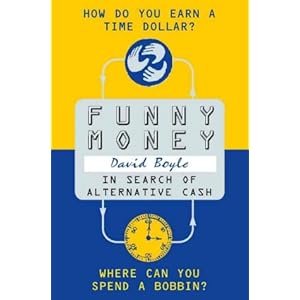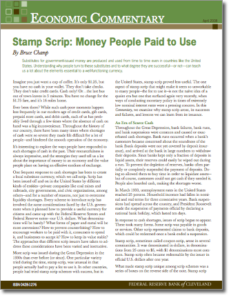 Creating Wealth
Creating Wealth
by Bernard Lietaer and Gwendolyn Hal
Communities everywhere are challenged by issues such as health, elder and child care, housing, education, food security, and the environment. On the surface, these problems appear to be rooted in economic crisis—for example, budget cuts have triggered reduced public services, soaring food prices have created food security concerns, and the subprime mortgage disaster has spawned record increases in foreclosures and homelessness.
However, if communities could match their unmet needs with their underutilized resources, many would find that while their economies may be struggling when measured in traditional terms, they possess enough genuine wealth to allow all their inhabitants to enjoy a vastly improved quality of life. Creating Wealth demonstrates how a healthy society can be attained through developing new systems of exchange. Using creative initiatives such as time banks, systems of barter and exchange, and local currencies, cities and towns can empower themselves and build vibrant, healthy, sustainable local economies.
In addition to presenting many compelling case studies of successful alternative currencies in action, Creating Wealth also explores the different types of capital that communities have to draw on, including natural, built, social, human, institutional, cultural, technological, and financial. This book will appeal to community activists, city planners and other public officials, and anyone interested in developing strong local economies.
The End of Money and the Future of Civilization
Thomas H. Greco Jr.
Very few people realize that the nature of money has changed profoundly over the past three centuries, or–as has been clear with the latest global financial crisis–the extent to which it has become a political instrument used to centralize power, concentrate wealth, and subvert popular government. On top of that, the economic growth imperative inherent in the present global monetary system is a main driver of global warming and other environmental crises.The End of Money and the Future of Civilization demystifies the subjects of money, banking, and finance by tracing historical landmarks and important evolutionary shifts that have changed the essential nature of money. Greco’s masterful work lays out the problems and then looks to the future for a next stage in money’s evolution that can liberate us as individuals and communities from the current grip of centralized and politicized money power.
Sacred Economics: Money, Gift, and Society in the Age of Transition
by Charles Eisenstein
Sacred Economics traces the history of money from ancient gift economies to modern capitalism, revealing how the money system has contributed to alienation, competition, and scarcity, destroyed community, and necessitated endless growth. Today, these trends have reached their extreme—but in the wake of their collapse, we may find great opportunity to transition to a more connected, ecological, and sustainable way of being.
This book is about how the money system will have to change—and is already changing—to embody this transition. A broadly integrated synthesis of theory, policy, and practice, Sacred Economics explores avant-garde concepts of the New Economics, including negative-interest currencies, local currencies, resource-based economics, gift economies, and the restoration of the commons. Author Charles Eisenstein also considers the personal dimensions of this transition, speaking to those concerned with “right livelihood” and how to live according to their ideals in a world seemingly ruled by money. Tapping into a rich lineage of conventional and unconventional economic thought, Sacred Economics presents a vision that is original yet commonsense, radical yet gentle, and increasingly relevant as the crises of our civilization deepen.
FUNNY MONEY: IN SEARCH OF ALTERNATIVE CASH
by DAVID BOYLE
Part travelogue, part polemic, Funny Money is an inspirational book, crammed with ideas and crowded with eccentrics, the pioneers of alternatives to cash. After reading it, The Queen’s head on Britain’s banknotes looks somehow less impressive.
Click here to visit the separate Funny Money website, which includes early articles about time banks, and Exchange columns from Town & Country Planning magazine.





